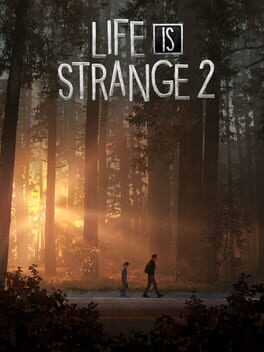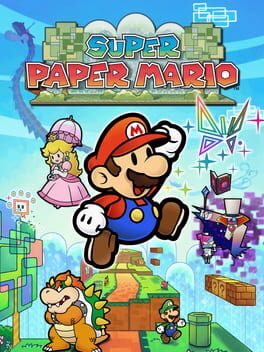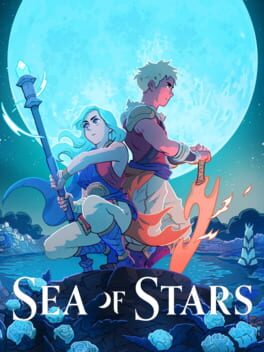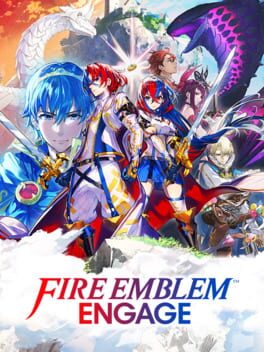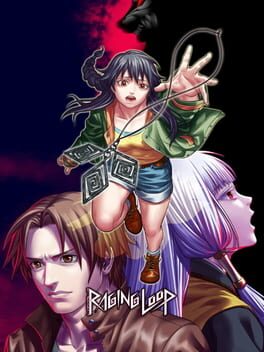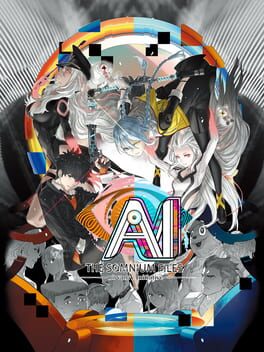Keyfinder
2018
Life is Strange 2 is the Super Mario Bros. 2 of the series. Good for what it is, but very different in ways that does not feel like Life is Strange. The first game made such a strong impression that it was always going to be difficult to follow up the first game, and in my opinion, they did a good job.
The major theme of the game is in how the player values the brotherly relationship, if you act moral, Daniel does too, as well as the opposite. The real theme of the game is that it only takes one thing to derail your entire life never to recover. This is a tragedy in nearly every way, no matter the decision that gets made, something terrible comes right after it. It is an exercise in how many terrible things you can witness and continue to keep going.
Gameplay-wise, there is almost no psychic activity, which keeps the gameplay a little more bland than the other games, as you can only influence rather than directly control the events of the game.
All in all, a good sequel that does not seem too related to the first game, nor the later games. This may be due to having a male protagonist or in general different themes that are more broadly political rather than simply moralistic. It is still an interesting experience that is worth having if you enjoy these types of games.
On a personal note: this game was a cathartic experience for me. At the time of playing this, I had just left a job I loved due to stress and had no idea what I was doing with my life, but this game did help me to feel things and process it positively, so for that, I will always be fond of my experience with it.
The major theme of the game is in how the player values the brotherly relationship, if you act moral, Daniel does too, as well as the opposite. The real theme of the game is that it only takes one thing to derail your entire life never to recover. This is a tragedy in nearly every way, no matter the decision that gets made, something terrible comes right after it. It is an exercise in how many terrible things you can witness and continue to keep going.
Gameplay-wise, there is almost no psychic activity, which keeps the gameplay a little more bland than the other games, as you can only influence rather than directly control the events of the game.
All in all, a good sequel that does not seem too related to the first game, nor the later games. This may be due to having a male protagonist or in general different themes that are more broadly political rather than simply moralistic. It is still an interesting experience that is worth having if you enjoy these types of games.
On a personal note: this game was a cathartic experience for me. At the time of playing this, I had just left a job I loved due to stress and had no idea what I was doing with my life, but this game did help me to feel things and process it positively, so for that, I will always be fond of my experience with it.
2007
A controversial, but intriguing addition to the Paper Mario series. This was the first step away from the traditional turn-based combat of the first two games into a platformer/RPG hybrid that can be isolating for fans of one genre over the other. The gameplay is fun but lacks impact, platforming is solid but narrows what can be done with level design, basically not good enough to be mainline platformer perfection, but still serviceable. The real star of the show is the story which is shockingly heartfelt and engaging to the player. The game is not afraid to be silly but knows when to dial it back to make story revelations the most impactful. This is likely the darkest and most story-heavy game in the Mario series, and it does not disappoint. I found myself emotional at various points in the game, further helped by a fantastic musical score to punch up the scenes for the most impact.
All in all, it is fun, but lacks the uniqueness of the previous entries. Largely, play for the story, as without it, there is not much to make this game particularly memorable. The story is worth it, especially for those who go in blind.
All in all, it is fun, but lacks the uniqueness of the previous entries. Largely, play for the story, as without it, there is not much to make this game particularly memorable. The story is worth it, especially for those who go in blind.
2023
This was a game I was initially extremely interested in. It had the appearance and call-backs to great JRPG classics, but I found myself feeling empty with the experience.
For the positives, the battles have a good pace, with satisfying challenge and puzzles to keep the player engaged. However, this quickly becomes problematic, as the you very quickly get all the tools each character has to use, with the player having to reuse the same strategies over and over for the best results. I found myself actively trying to avoid battle due to how formulaic they became.
One aspect I see as working well is the stage design and platforming elements. The player consistently gets new tools to improve how they approach puzzles, which, for me, were fun to work through and may the world feel like an adventure.
The biggest and most glaring issue with the game is the story and characters. Characters either have one trait or no traits. For example, the two leads have such little depth together they would make for one underwritten single character. This led to giving far too much attention to the deuteragonist, who steals the spotlight and hijacks scenes that could be used to further the leads rather starving significance in the story. This makes him the best character and the most divisive character.
Plot-wise, I struggled to complete how much I did, as it would start and I was so uninterested I would nearly fall asleep. The stakes could never be lower, with the characters and the world itself never caring about any of the possible threats. For instance, a great evil has just been released and the characters decide to spend weeks helping to rebuild a town for some refugees. While nice, it is a sharp departure to how characters should respond to a threat.
Ultimately, the reason I could not complete the game is the tedium. All battles are the same, the characters have nothing interesting to say, the plot is not doing anything, and the world does not feel lived in, rather a beautiful set piece to go through.
For the positives, the battles have a good pace, with satisfying challenge and puzzles to keep the player engaged. However, this quickly becomes problematic, as the you very quickly get all the tools each character has to use, with the player having to reuse the same strategies over and over for the best results. I found myself actively trying to avoid battle due to how formulaic they became.
One aspect I see as working well is the stage design and platforming elements. The player consistently gets new tools to improve how they approach puzzles, which, for me, were fun to work through and may the world feel like an adventure.
The biggest and most glaring issue with the game is the story and characters. Characters either have one trait or no traits. For example, the two leads have such little depth together they would make for one underwritten single character. This led to giving far too much attention to the deuteragonist, who steals the spotlight and hijacks scenes that could be used to further the leads rather starving significance in the story. This makes him the best character and the most divisive character.
Plot-wise, I struggled to complete how much I did, as it would start and I was so uninterested I would nearly fall asleep. The stakes could never be lower, with the characters and the world itself never caring about any of the possible threats. For instance, a great evil has just been released and the characters decide to spend weeks helping to rebuild a town for some refugees. While nice, it is a sharp departure to how characters should respond to a threat.
Ultimately, the reason I could not complete the game is the tedium. All battles are the same, the characters have nothing interesting to say, the plot is not doing anything, and the world does not feel lived in, rather a beautiful set piece to go through.
2023
Probably the most enjoyable terrible experience I have ever had. For the positive, it is without competition the best-looking and feeling Fire Emblem game in the series. The animations are fluid and beautiful and the environments nice looking and dynamic. As well, some of the best gameplay in the series, with fantastic strategy and Emblems being very enjoyable additions to help spice up gameplay.
On the negative side, is the boring, cringy, poorly written, unengaging (heh), and trite plot and characters. On the appearance side, I feel most of the characters tend to be overdesigned being cartoonish and distracting. Compare Celine in a ball gown and floor-length hair to Diamont in full armor to see where it seems outlandish these people couple exist in the same world. That is a great issue, where female characters tend to run generically cute while male characters have more developed designs. Personality-wise, the characters are a step back from 3 Houses, as they lack the same level of depth, which goes back to how bland the world in the game is.
The world is essentially biomes for different level dynamics, with Brodia being the clear loser, as it has no defining characteristics while the others at least have weather conditions. The intent was to make the world feel like an adventure, to which it feels more like a Disney World ride, where you see a pretty, but interesting place and then move to the next one.
Plot wise the game might as well not have one. The game retreads a lot of what was used in Fates, but lacks even the attempt of those games. The story is generic and can be more satisfying to skip than it is to watch. Stakes seem low and never get higher, especially considering The Four Punching Bags and how they dominate the story and gameplay while being boring and reductive to see.
All in all, play for the gameplay and skip the rest. Developing strategy is satisfying and replayable, but with the lack of customization, mileage may vary. Characters are boring, visually off-putting, and have vast gameplay differences that make it difficult to justify using some over much better ones.
On the negative side, is the boring, cringy, poorly written, unengaging (heh), and trite plot and characters. On the appearance side, I feel most of the characters tend to be overdesigned being cartoonish and distracting. Compare Celine in a ball gown and floor-length hair to Diamont in full armor to see where it seems outlandish these people couple exist in the same world. That is a great issue, where female characters tend to run generically cute while male characters have more developed designs. Personality-wise, the characters are a step back from 3 Houses, as they lack the same level of depth, which goes back to how bland the world in the game is.
The world is essentially biomes for different level dynamics, with Brodia being the clear loser, as it has no defining characteristics while the others at least have weather conditions. The intent was to make the world feel like an adventure, to which it feels more like a Disney World ride, where you see a pretty, but interesting place and then move to the next one.
Plot wise the game might as well not have one. The game retreads a lot of what was used in Fates, but lacks even the attempt of those games. The story is generic and can be more satisfying to skip than it is to watch. Stakes seem low and never get higher, especially considering The Four Punching Bags and how they dominate the story and gameplay while being boring and reductive to see.
All in all, play for the gameplay and skip the rest. Developing strategy is satisfying and replayable, but with the lack of customization, mileage may vary. Characters are boring, visually off-putting, and have vast gameplay differences that make it difficult to justify using some over much better ones.
2015
As a fan of Werewolf-style games, this was a story I found myself enraptured by with a constantly evolving cast and story revelation and twists. The game begins slow with allowing the player to get acquainted to the world as an outsider to the actions before getting them involved in it. As well, much of the game subverts the expectation of the player, especially in how players would likely jump to the conclusion that their actions will be the proper solution when that is quickly proven incorrect.
The pacing is an exercise in removing the player from the player insert character. Haruaki Fusaishi is most certainly not a conventional protagonist, with him spending the majority of the story being both selfish, self-centered, and conniving, but never to the point of being the active villain in the story, which was very surprising to see.
Gameplay-wise, issues for players may arise. The game is almost strictly visual novel, with the only player input being from branching path choices, which will largely be pointless as most lead to game over screens. Mileage may vary for each player, but for me, I was not bothered due to the strength of the mystery and character interactions. Additionally, the game is very wordy and does not have a dubbed option, so while I would have preferred to have had the option, I was able to get through it.
All in all, this is a game best liked by people who can handle a strict visual novel, but quite frankly if it doesn't hook you after the first trial, you'll likely never get hooked. I may be rating it too highly for its faults, but even years after playing it, it still revisits my mind, so the impact was apparent.
The pacing is an exercise in removing the player from the player insert character. Haruaki Fusaishi is most certainly not a conventional protagonist, with him spending the majority of the story being both selfish, self-centered, and conniving, but never to the point of being the active villain in the story, which was very surprising to see.
Gameplay-wise, issues for players may arise. The game is almost strictly visual novel, with the only player input being from branching path choices, which will largely be pointless as most lead to game over screens. Mileage may vary for each player, but for me, I was not bothered due to the strength of the mystery and character interactions. Additionally, the game is very wordy and does not have a dubbed option, so while I would have preferred to have had the option, I was able to get through it.
All in all, this is a game best liked by people who can handle a strict visual novel, but quite frankly if it doesn't hook you after the first trial, you'll likely never get hooked. I may be rating it too highly for its faults, but even years after playing it, it still revisits my mind, so the impact was apparent.
After finishing the first game, my first thought was "I cannot wait for a second game" and when this finally arrived my thought was "it was okay". I would not say the game does anything worse than the previous game, but more so that it does not exceed what was already established beforehand. The major difference is that the game is split between two new protagonists: the previously seen Mizuki and the new Ryuki. The game is primarily established to give more context to Mizuki and it does that in some rather ludicrous ways; without spoilers: almost everything previously learned about her is altered, for better or worse. Ryuki, on the other hand, does not measure up, he is a more serious character, but it leads him to be harder to care about, especially considering how much he was meant to act as the opposite of Date.
Another issue with the cast for this game is that they would routinely drag characters from the previous game to this one, often times just for the cameo, to which they somewhat took time away from establishing the new characters. The new characters are likable and endearing, especially in how they are involved in the overall story of the game.
The plot is significantly less gory, but no less horrific. As well, the structure is fascinating in how it manipulates the player's perspective on events. The overall story and conflict is equally, in my opinion, as the first game, but the path to get there is more tumultuous.
Gameplay-wise, the Somniums continue to be fun, but can be annoying in this early mistakes are almost impossible to recover from, which can be annoying depending on the player.
All in all, a solid sequel with an interesting story, but lacks what the French say "that one thing" to really make the experience impactful at the deepest level.
Another issue with the cast for this game is that they would routinely drag characters from the previous game to this one, often times just for the cameo, to which they somewhat took time away from establishing the new characters. The new characters are likable and endearing, especially in how they are involved in the overall story of the game.
The plot is significantly less gory, but no less horrific. As well, the structure is fascinating in how it manipulates the player's perspective on events. The overall story and conflict is equally, in my opinion, as the first game, but the path to get there is more tumultuous.
Gameplay-wise, the Somniums continue to be fun, but can be annoying in this early mistakes are almost impossible to recover from, which can be annoying depending on the player.
All in all, a solid sequel with an interesting story, but lacks what the French say "that one thing" to really make the experience impactful at the deepest level.
